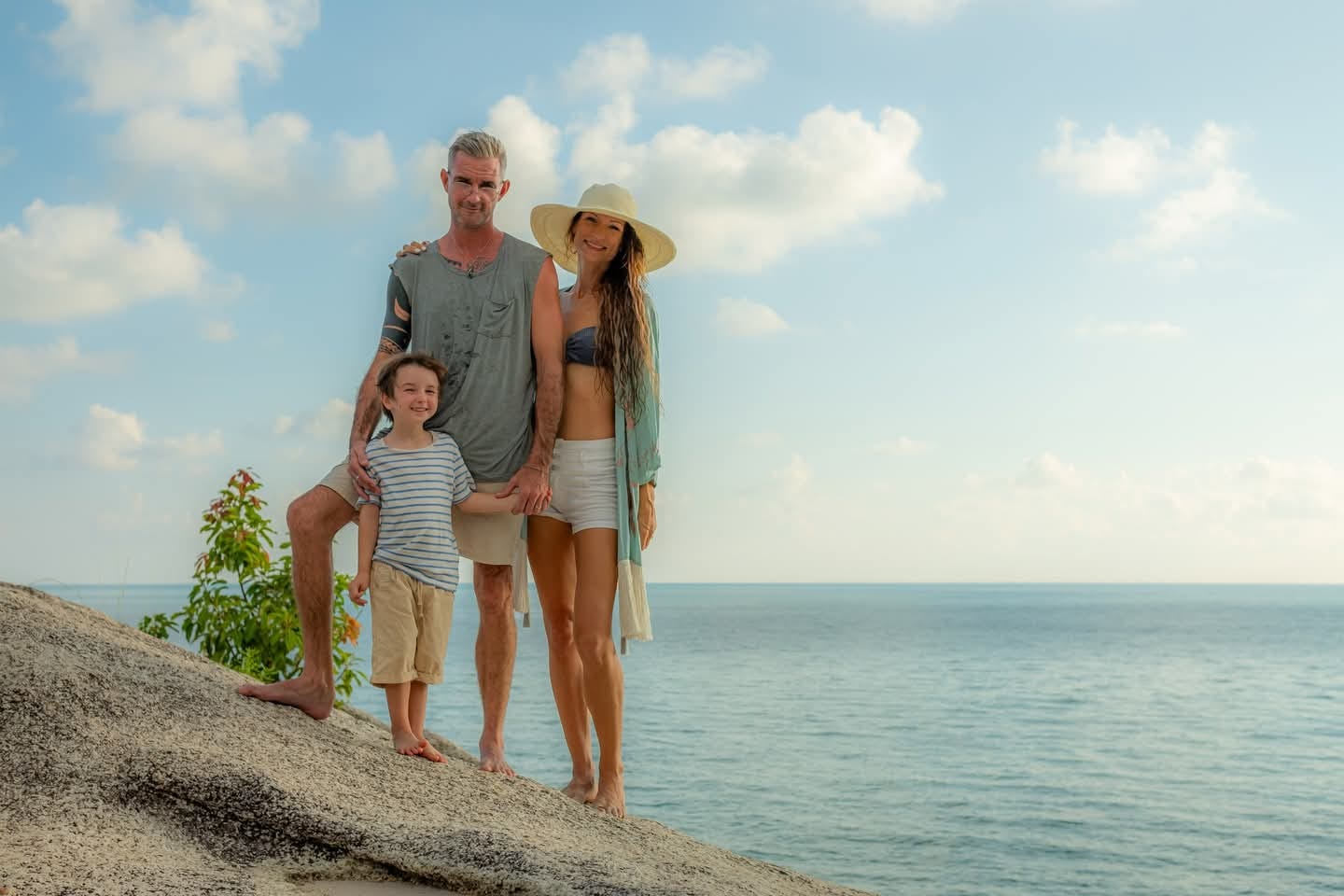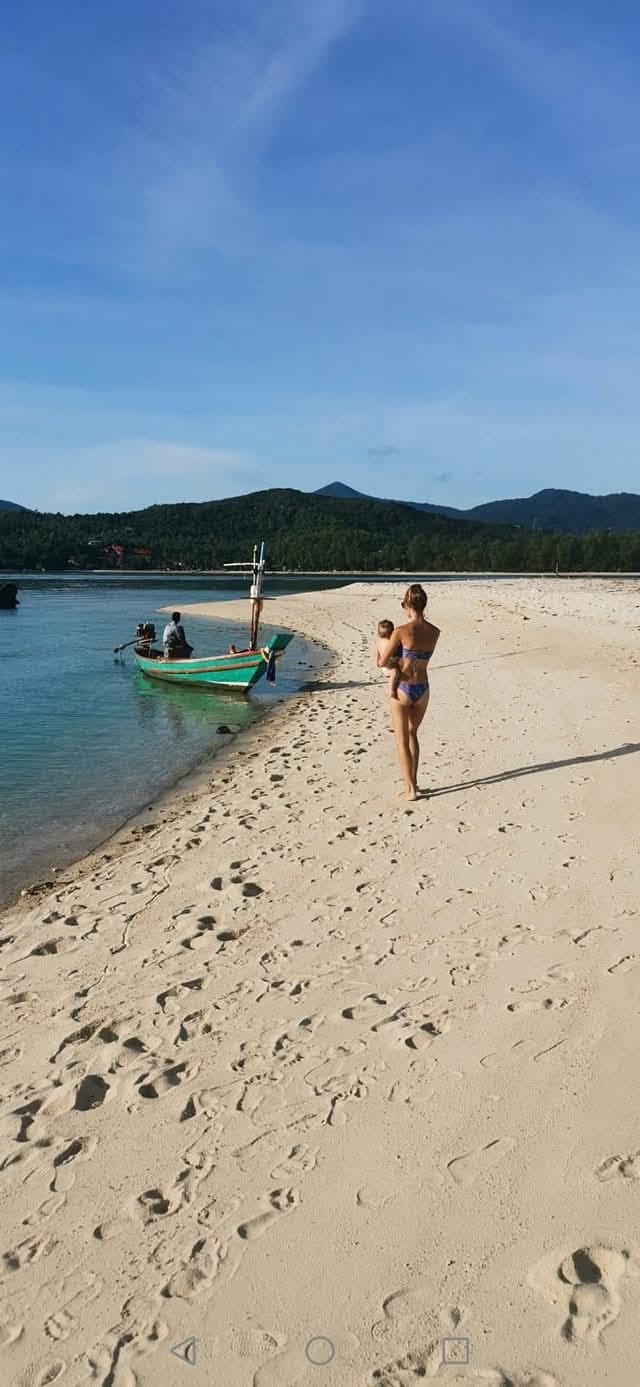Should You Move to Thailand?
Insights and reflections from people who've done it: Koh Phangan edition
Note:
and I will be on a Substack Live this Tuesday at 9 am EST (NYC time) going in-depth on her survey answers (she’ll be taking questions), and her upcoming move to Spain. Join us!Use this link to add it to your calendar.
If you’re already a reader of Kaila’s excellent Substack, Girls’ Guide to Living Abroad, then you know this is going to be a good one. She’s known for honest and sometimes unpopular opinions, but in a world of influencers telling us what we want to hear instead of what we need to know, she’s a fresh and influential voice in the foreign-at-home space.
For those of you who already live abroad, you may find yourself nodding in quiet agreement as you read her responses about the deep and persistent issue of cultural integration. Thailand is undoubtedly a tougher nut to crack than other countries, but we’ve all faced this same challenge with varying degrees of success.
And for all those White Lotus fans out there dreaming of escaping to a Thai beach, read this first.
1. Background
Country of origin: Canada
Current residence: Thailand (for now — moving to Spain in August)
Years living abroad: 19
2. Motivation
What was the primary reason for your move?
I never felt like I fit in in Canada. I always knew I was supposed to live somewhere else—somewhere less rigid, more expansive. My boyfriend at the time felt the same, so we applied to the JET programme after university. Japan didn’t work out, but it was the start of everything. That one failed application cracked the door open, and I never looked back.
3. Practicalities
How challenging was the visa and work permit process?
At first, it was easy. I had a good job in Bangkok, and the company took care of everything—paperwork, fees, renewals. But when I opened my own agency and moved to Koh Phangan, the game changed. It became clear how much the system in Thailand is stacked against small entrepreneurs, especially outside the big cities. Legal services on the island are unreliable at best, predatory at worst. Over the years, the costs and bureaucratic hoops have only worsened. These days, staying legal here as a business owner feels almost intentionally impossible.
What were the biggest hurdles in setting up your life abroad?
Legal and visa issues, hands down. But beyond that? Building any kind of reliable structure. Everything from banking to healthcare to basic services is an exercise in patience, persistence, and crossed fingers.
4. Cultural Adaptation
What were the most significant cultural adjustments?
Learning patience. And I don’t mean the cute kind. I mean, standing-in-line-for-four-hours-at-Immigration kind.
Waiting-at-the-bank-for-two-hours-just-to-sign-a-form kind.
The systems here move slowly, and if you’re someone (like me) who battles rage when things feel inefficient, Thailand will test you daily. I’m better for it, but it hasn’t been easy.
How did you handle language barriers and cultural misunderstandings?
Thai is a beautiful but brutally difficult language. I’ve taken classes, followed YouTube channels, studied on my own… and I still can’t crack it. I think part of that is because most people on Koh Phangan speak pretty decent English, so there’s less pressure to master Thai, but it also means there’s a cultural distance that’s hard to bridge.
Farangs (foreigners) and Thais live mostly parallel lives, and real integration is rare. One of my closest friends is Thai—her son is my godson—but she’s the exception. I’ve longed for deeper local friendships, but they’ve been few and far between. That’s one of the reasons I’m leaving.
5. Quality of Life
How does your quality of life compare to where you came from?
If you'd asked me 15 years ago, I would’ve said it was paradise. I lived by the beach, drove a scooter barefoot, and worked a few hours a day—it was the dream. But I’m in a different season of life now. I have a family. I crave structure and dependability. And the very things that drew me here—the looseness, the wildness, the freedom—are what I’m now running from.
Are you satisfied with the cost of living, healthcare, and education?
Not even a little. Healthcare, especially, is a disaster on the islands. I’ve written about this—including the time my brother-in-law crashed his bike three days into his holiday, was rushed to the best hospital on the island, and ended up with completely unnecessary knee surgery. They stitched him up with a superbug and nearly caused him to lose his leg.
Private hospitals over on Samui aren’t much better—you’re treated like a walking ATM. Diagnoses are often exaggerated or invented to extract as much as they can from you or your insurance. It's terrifying.
6. Personal Life
How has moving abroad affected your relationships?
It’s put a massive distance—not just physical, but emotional—between me and my loved ones back home. Both of my parents died while we were all living in different countries. I was there for my dad’s passing, but not for my mum’s. I missed it. And that loss, which just happened a few months ago, has changed me on a cellular level. I don’t think I’ll ever be the same.
It’s also taught me a lot. About grief, about showing up, about what really matters. I’m still trying to alchemise the pain into something meaningful.
As for my relationships abroad, they’ve been intense. Living abroad forces closeness, because you don’t have your old safety nets. That can be beautiful, but also volatile. I’ve had falling-outs with people who once felt like family. When things fall apart here, they fall hard.
7. Professional Experience
How has living abroad impacted your career?
It’s given me opportunities I’d never have had in Canada. I once ran a creative house for writers where you could pay your rent in words (it didn’t end well, but makes a great story now). My husband opened a water park. I was editor of a luxury travel magazine in Bangkok and got invited to press events, spa days, and free lunches; it felt like I owned the city.
Living abroad can be creatively expansive in ways that just aren’t possible back home. I don’t regret a thing, even when it’s gone sideways.
Was it easy to find work?
At the start, yes. But since then, I’ve mostly worked for myself—building things from scratch, and reinventing when necessary. That’s the expat hustle.
8. Advice for Future Expats: What do you wish you knew before moving?
If I’d known I wouldn’t have as much time with my parents as I thought I would’ve made different choices—probably still lived abroad, but spent more time in Mexico, closer to my mum.
That Koh Phangan’s property market would explode. If I’d known, I’d have invested earlier, bigger, smarter.
Everything else? I’m glad I didn’t know. The surprise is part of the ride.
What advice would you give someone considering a similar move?
If you’re high-strung or easily triggered, Thailand will break you. Unless you’re ready to surrender—deeply, daily, and with humour—this place will eat you alive.
9. Overall Experience
Was it worth it?
Absolutely. Living abroad has changed me more than anything else ever could. It’s given me freedom, adventure, heartbreak, and perspective. It’s torn me down and built me back up. It’s given me a son. It’s taken my parents. It’s stretched me in every direction—and I wouldn't take a single step back.
More excellent articles from Kaila:
Thanks for reading!









I love Kaila authenticity ❤️
You want to live to TAIWAN ?!?!?!